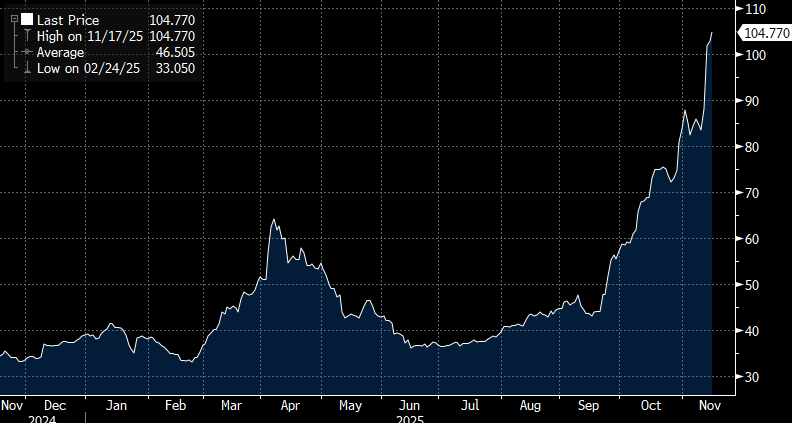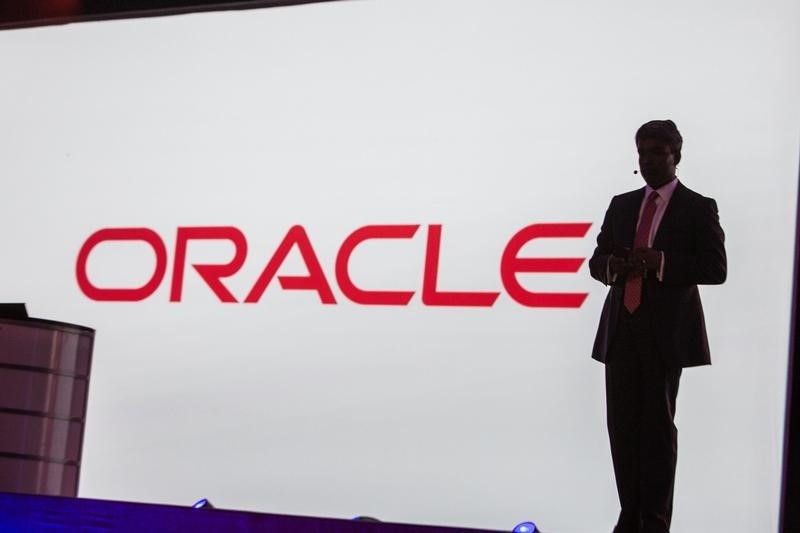Hedge funds are buying these two big tech stocks while selling two rivals
Investing.com -- Shares in Oracle Corporation (NYSE:ORCL) are down as much as 37% from the record high set in September as investors turned wary of its debt-financed jump into artificial-intelligence infrastructure, with bond and credit-default‐swap (CDS) markets flashing caution.
In layman’s terms, a CDS is insurance against a company going bust. When the price of that insurance jumps, investors are getting nervous.
Get premium news and insight, AI stock picks, and deep research tools by upgrading to InvestingPro - get 55% off today
Investors dumped Oracle bonds after a report that the company plans to add about $38 billion in debt to fund its cloud and AI build-out. The move drove weaker bond prices and higher yields, with market participants pointing to stress in a previously stable investment-grade issuer.
Oracle 5-year CDS (Source: Bloomberg)
Traders have accelerated hedging via 5-year CDS contracts, signalling mounting concerns about credit risk in the AI arms race. Market players say the underlying catalyst is the scale and speed of AI infrastructure investment across the tech sector.
Wall Street analysts fear that borrowing to fuel the build-out may strain cash flows, delay returns and heighten credit risk even for large-cap names. A recent fund-manager survey found that over half of respondents view AI spending as the top market risk. However, not everyone is very concerned.
"Oracle is structuring AI compute contracts as non-cancelable, non-modifiable, take-or-pay contracts ensuring stable cash flows and cost visibility," BofA research analyst Brad Sills wrote in a client note last month.
For Oracle, the shift is material. The company has for decades drawn strength from its enterprise-software and database franchises. Now it is pivoting heavily into data-centres and cloud infrastructure tailored for AI workloads, financed with freshly issued debt.
"Oracle’s entry into AI compute marks its transition into a fourth hyperscaler, as accelerated capex and GPU density bring the company’s footprint inline with hyperscaler peers," Sills said.
The total addressable market (TAM) for AI infrastructure is estimated by IDC at $200 billion in annual spend by 2028; a 42% 5yr CAGR.
While the mounting borrowings prompted some bond buyers and lenders to tighten terms or demand higher compensation, equity investors are taking notice. Rising credit spreads and bond yields have weighed on sentiment, adding to concerns about execution risks and the timing of returns from AI investments.
Some market‐watchers now treat Oracle’s credit-market performance as a proxy for the broader AI-infrastructure boom’s financial health.
While Oracle remains investment grade and its default risk remains low in absolute terms, the warning lights flashing in both its debt and derivatives markets are rare for a company of its size and standing.
